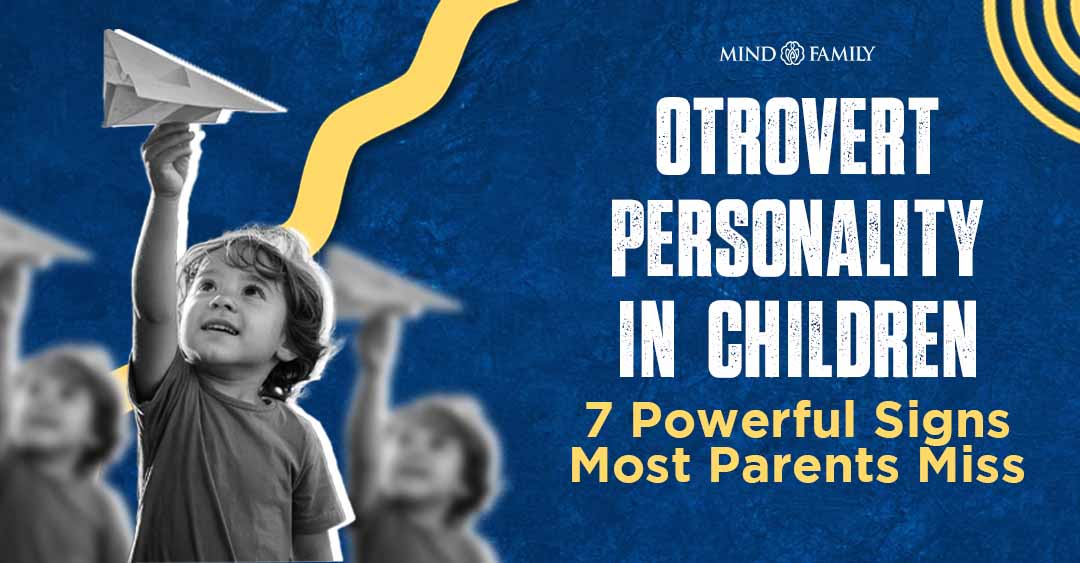What is Authoritative Parenting? It’s a method that seeks to strike a delicate balance between structure and emotional support, nurturing a child’s development while fostering a strong sense of independence and self-assurance.
Authoritative parenting stands out for its ability to create an environment where children can thrive emotionally, socially, and academically.
For an indepth understanding, in this article, we are going to explore the nuances of authoritative parenting style by providing you with the advantages and disadvantages of authoritative parenting style.
But first, let us first explore what is authoritative parenting and how it affects the holistic development of a child.
What Is Authoritative Parenting?
Authoritative parenting promotes a harmonious blend of parental affection, direction, and care coupled with a sense of discipline and organization.

Authoritative parents are characterized by their supportive, responsive nature, demonstrating keen attentiveness to their children’s requirements.
While they maintain firmness in enforcing rules, they are receptive to their children’s viewpoints. This style fosters emotional resilience, effective coping mechanisms, and a general sense of contentment, contributing to a well-rounded and fulfilling life.
Read More: What Are Parenting Styles? 4 Effective Parenting Styles
Characteristics of Authoritative Parenting
Authoritative parenting is a balanced and effective approach that combines nurturing warmth with structured discipline. Unlike overly strict or permissive styles, authoritative parents maintain a supportive environment while setting clear boundaries.

The authoritative parents share some common traits. let us look at the characteristics of authoritative parenting as it will make it easier to understand what is authoritative parenting-
Here are the characteristics of authoritative parenting mentioned below:
- Warmth with discipline balance
- Open and honest communication
- Explains reasons behind rules
- Respects children’s individuality
- Sets clear behavior expectations
- Allows flexibility within boundaries
- Encourages problem-solving
These characteristics of what is authoritative parenting collectively contribute to a nurturing and supportive environment that fosters children’s holistic development and emotional well-being.
Read More: What Is Parenting? 5 Steps To More Effective Parenting
Example Of Authoritative Parenting
Authoritative parenting proves advantageous in diverse parenting scenarios. For instance, parents adeptly handle challenging situations like violence, drug use, or academic struggles with composure and empathy towards their children.

Simultaneously, they ensure that rules are upheld and apply appropriate consequences when rules are violated. This approach grants children valuable chances to grasp the significance of accountability and learn from their errors.
Here are a few example of authoritative parenting:
1. Handling Aggression
In what is authoritative parenting, handling aggression involves guiding children to recognize and manage their emotions. The parent acknowledges that kids may not fully grasp their feelings, so they explain why violence isn’t an appropriate response to anger.
They then present alternative ways of dealing with frustration, such as empathy and understanding.
2. Setting Clear Boundaries
One of the core characteristics of authoritative parenting centers on creating clear boundaries for children’s conduct.
An example of authoritative parenting shows that a parent might establish a household rule fixing a daily 20-minute screen time limit.
If a child resists this rule, the parent elucidates its rationale, listens to the child’s perspective, and suggests alternative activities. However, the parent consistently upholds the rule.
3. Addressing Academic Challenges
An authoritative parent addresses academic challenges by pinpointing potential factors behind poor grades. For example, a child might be struggling with a learning disability.
In such instances, the parent might liaise with the school or seek professional advice to determine effective intervention strategies.
4. Managing Alcohol Consumption
An exemplary illustration of characteristics of authoritative parenting pertains to alcohol consumption. Here, a parent initiates a conversation about suspected alcohol use, providing space for the child to be candid.

The teen has the opportunity to discuss peer pressure experiences and difficulties in resisting it.
In this example of authoritative parenting, the parent offers guidance and support, followed by an equitable consequence or a cautionary discussion about future outcomes.
The examples show what is authoritative parenting and showcase its emphasis on fostering open communication, nurturing understanding, and guiding children toward responsible decision-making.
Read More: Free Parenting Style Test – Mind Help (Self-Assessment)
Advantages Of Authoritative Parenting
Authoritative parenting, characterized by its balanced and nurturing approach, offers a range of advantages of authoritative parenting that contribute to the holistic development of children.
Authoritative parenting style creates an environment where children can flourish emotionally, socially, and intellectually.
Here are five key advantages of authoritative parenting:
1. Resilience and Confidence
One of the standout advantages of authoritative parenting style is the cultivation of resilient and confident individuals. By establishing clear boundaries and consistent expectations, children learn to manage challenges effectively.
When faced with difficulties, they possess the self-assurance to tackle problems head-on, equipped with problem-solving skills nurtured through their parents’ guidance.
2. Emotional Intelligence
Authoritative parents foster emotional intelligence in their children by encouraging open dialogue about feelings. This enables children to recognize and manage their emotions constructively.
Read More: What Is Emotional Intelligence And Why Is It An Important Skill?
With parents who listen and offer empathy, children develop strong emotional coping mechanisms, leading to healthier emotional regulation and improved mental well-being.
3. Effective Communication Skills
The emphasis on open communication in authoritative parenting equips children with exceptional communication skills. Regular discussions and a welcoming environment for expressing opinions help children articulate their thoughts and feelings confidently.
Read More: How To Improve Communication Skills: Top 5 Strategies
These skills extend beyond the family setting, benefiting them in academic, social, and professional contexts.
4. Autonomy and Responsibility
By involving children in decision-making and explaining the rationale behind rules, authoritative parents instill a sense of autonomy and responsibility.
Children learn to make informed choices, which not only fosters independence but also encourages them to take ownership of their actions. This prepares them for the challenges of adulthood.
5. Positive Relationship Building

Authoritative parenting nurtures a positive parent-child relationship built on mutual respect and understanding. Children raised in this environment feel valued and heard, strengthening the parent-child bond.
This positive foundation facilitates healthy relationships with peers and authority figures, as these children are accustomed to cooperative and respectful interactions.
Furthermore, an authoritative parenting style promotes a well-rounded approach to learning and development. Children raised in this style are encouraged to explore their interests and talents, leading to a diverse skill set.
The balanced guidance they receive allows them to strike a harmonious equilibrium between academic pursuits and extracurricular activities. This versatility contributes to their personal growth and provides a strong foundation for future success.
Read More: 5 Effective Parenting Strategies To Support Your Child’s Mental Health
Disadvantages Of Authoritative Parenting
Authoritative parenting, despite its many strengths, is not without its disadvantages. While this parenting style is widely praised for its balanced approach, there are aspects that can present challenges and potential downsides.
Here are five points that shed light on the disadvantages of authoritative parenting:
1. Emphasis on High Expectations
One potential drawback of authoritative parenting is the emphasis on high expectations. While setting standards can be beneficial, the pressure to meet these standards might inadvertently create stress and anxiety in children.
The constant pursuit of excellence can lead to a fear of failure and perfectionism, hindering a child’s ability to handle setbacks with resilience.
2. Time-Consuming
Authoritative parenting involves frequent communication, active listening, and consistent enforcement of rules. This level of involvement requires significant time and effort from parents.
Juggling work, household responsibilities, and parenting can become overwhelming, potentially affecting the parents’ well-being and overall family dynamics.
3. Negotiation and Decision-Making
In authoritative parenting, children are encouraged to voice their opinions and participate in decision-making. While this empowers them, it can sometimes lead to prolonged negotiations and disagreements.
Balancing the child’s input with parental authority can be challenging, especially when time is limited or when decisions require swift action.
4. Potential for Inconsistency
Despite the focus on consistency, authoritative parenting can sometimes lead to mixed messages. Parents might face situations where they need to adapt their approach due to extenuating circumstances.
However, inconsistent responses can confuse children and erode their sense of security in what is authoritative parenting.
5. Risk of Permissiveness
Striking the right balance between discipline and warmth can be delicate. There’s a risk that in attempts to foster open communication and mutual understanding, parents might inadvertently lean toward permissiveness.
This could result in children taking advantage of leniency, failing to grasp the importance of boundaries and consequences.
It’s important to note that the disadvantages of authoritative parenting are not universal, and their impact can vary based on individual family dynamics and the children’s personalities.
Read More: What Is Toxic Parenting? Signs And Ways To Deal With Toxic Parenting
How To Be An Authoritative Parent?
Now that you have understood what is authoritative parenting and the advantages and disadvantages of authoritative parenting, we will show you how you can implement this parenting approach and how to be an authoritative parent.
The following are steps you can take to implement authoritative parenting:
1. Set Clear Guidelines
Start by establishing explicit rules and effectively communicating behavioral expectations and boundaries to your child.
2. Enforce Consistent Consequences
When rules are breached, ensure that you institute appropriate consequences and steadfastly follow through on them.
3. Infuse Warmth and Empathy
Embrace compassion, empathy, and warmth in your interactions with your child, creating an atmosphere of understanding and support.
4. Prioritize Relationship-Building
Shift the focus from strict control to cultivating a robust, nurturing bond with your child. This foundation will facilitate effective communication and mutual trust.
5. Nurture Independence
Encourage your child’s autonomy by allowing them to take ownership of their decisions. Permitting them to experience the natural outcomes of their actions fosters responsible decision-making.
6. Promote Emotional Regulation
Help your child develop emotional intelligence by teaching them how to manage and express their feelings in healthy ways.
By incorporating these characteristics of authoritative parenting, you’ll create an environment that encourages open communication, nurtures personal growth, and fosters a resilient and responsible individual.
Read More: How To Be A Great Parent: 18 Hacks and Fundamental Insights
A Word From Mind Family
Embracing authoritative parenting involves finding equilibrium in discipline, nurturing, and independence.
What’s crucial is a recognition of the potential disadvantages of authoritative parenting and a proactive effort to mitigate them. Open communication with children about the challenges of balancing expectations and flexibility can help them understand the reasoning behind parental decisions.
Additionally, seeking support from parenting resources or professionals can aid parents in navigating these challenges and adjusting their approach to best suit their family’s needs. Learning from the example of authoritative parenting can also be an effective method.
As parents reflect on their role in shaping the next generation, authoritative parenting offers a blueprint for nurturing not just responsible citizens, but compassionate contributors to society.
Frequently Asked Questions (FAQs)
Why is authoritative the best parenting style?
The authoritative parenting style is often considered the best due to its balanced approach, combining clear expectations and consistent discipline with emotional support and open communication.
Are authoritative parents strict?
Authoritative parents strike a balance between firmness and warmth, unlike authoritarian parents who lean toward strictness without warmth. The former engage in dialogs to articulate and elucidate rules, remaining receptive to discussions and even adapting rules when warranted.
Can yelling at a child cause anxiety?
Yes, yelling at a child can contribute to the development of anxiety. Repeated exposure to raised voices and negative interactions can create an environment of fear and insecurity, which may lead to heightened stress and anxiety in children.












Leave a Reply